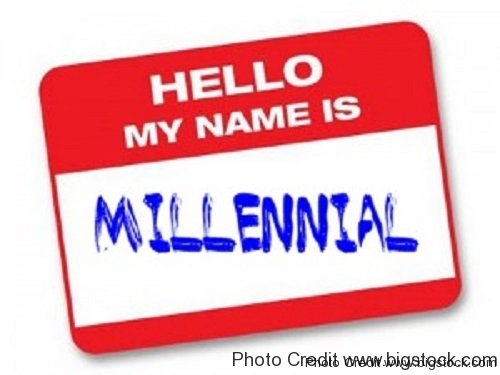
Each generation gets its own set of labels that serve as descriptors for what that group of individuals embodies. There are the Traditionalists, the Baby Boomers, and Generations X, Y (also known as millennials), and Z. For millennials, who are those reaching young adulthood around Y2K, those labels can be conflicting and pose problems for this generation. Being one of them, I’ve seen and experienced it myself. While the term “millennial” may not be used so much by other generations, the labels used can either enhance or discredit a person all before there’s even been a chance to make a first impression.
The Privileged Generation
It’s true that our generation was the first to grow up with access to various forms technology from the time we were young well into adulthood. From the video games to the basic desktop computers, technology has advanced as we’ve grown, allowing us to make it a part of our daily lives. In doing so, we’ve taken on the mantle of becoming the “Privileged Generation.” The problem there is the term privilege is seen in a negative light with the assumption being that we’ve never really had to work for what we wanted, everything is made easy to us, and we’re lazy.
That perception of laziness in particular is what previous generations latch onto when meeting a millennial. Particularly in job interviews. There’s the stigma that because we’re so privileged, we’re not driven, not willing to work, and not able to focus due to all the distractions around us. We’ve had it easy, so we couldn’t possibly be ready to take on a full set of responsibilities, right?
The Saviors
Now here comes the contradiction. Millennials have also been called the generation that will save the world. Through our ingenuity, unlimited resources for information, and a drive to prove ourselves, our generation has been pegged as the one that will enact positive change in the workplace, the economy, and even politics. We aren’t satisfied with the way things are. We want them to get better, and we’re willing to be the ones to make that happen. We’re getting involved in political conversations, we’re starting our own businesses to fill needs in our communities, we’re more aware of our impact on the environment.
How a single generation can be called “lazy” yet also be looked to as examples for how to make the world better is mind-boggling. Yet, there it is. It’s another problem millennials face. If you’re not thought of as being lazy, then you’re capable of doing anything. You automatically understand the latest technology, have the solution to any problem, and will be a strong leader for your company or organization. The bar is either set to low or too high. You’re either one or the other. There’s no middle ground.
The Financially Unfortunate
Being called privileged or a savior isn’t the toughest issues millennials have to deal with. That winning spot is for being the financially unfortunate generation that has had to deal with a recession and an economy that has yet to bounce back. It’s sad to think that when I graduated high school in 2004 I could get gas for under $2 per gallon, about a half hour’s drive from New York City. Try finding that now.
Even considering the fact that prices will go up every year, millennials have had to face an uncertain job market, prejudice against being hired (as those with experience are almost always preferred over those right out of college), and the high costs of living keeping many of our generation at home. Too late we’re finding out that the idea “you can do whatever you put your mind to” combined with a college degree doesn’t automatically lead to success. Too late we’re finding out what happens to all that student debt if you can’t get a quality job fresh out of the gate. Millennials are burdened with a financial hole to fill when they should be saving for their futures.
Being a member of Generation Y comes with a lot of judgment, but these three millennial labels are used the most often to describe our generation. The good part about this is that millennials are still growing, still changing, and still challenging what’s in front of them. They aren’t content to fit into neat boxes and are perhaps the most driven to prove themselves. Maybe over time millennials will find a way to break away from the labels and be judged for who they are and what they can contribute. We can only hope.
